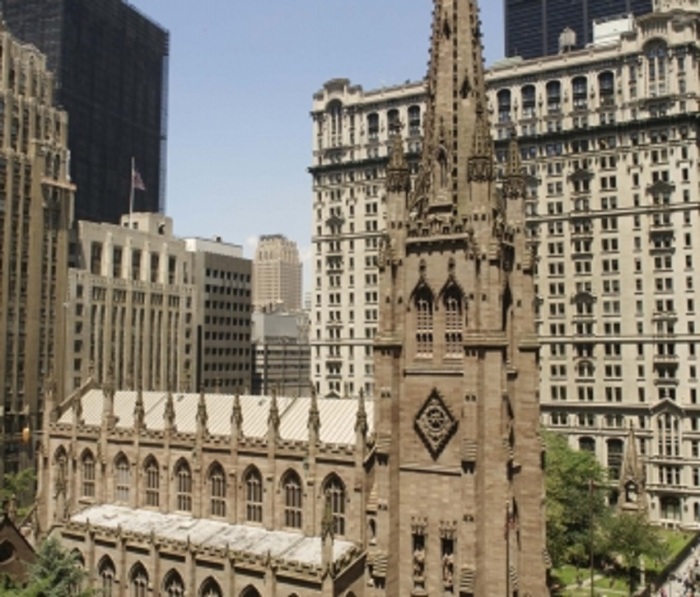Iconic NYC Trinity Wall Street Church Sues Wal-Mart After It Rejects Proposal to Reduce Gun Sales

An iconic church in New York City has continued to apply pressure to the major retail company Wal-Mart over its sale of firearms in certain stores.
Trinity Wall Street Church, an Episcopal congregation founded in the early 18th century, has sought to get Wal-Mart to entertain a shareholder proposal aimed at curbing gun violence by reducing the retail chain's gun sales.
The church filed a lawsuit, which is in litigation, over the right of their shareholder proposal to be considered by Wal-Mart.
The Rev. James Herbert Cooper, the 17th rector of Trinity Church, told The Christian Post that the proposal at the heart of the lawsuit "addresses a significant gap in Wal-Mart's corporate governance."
"It is not designed to question whether Wal-Mart takes gun safety seriously, to interfere with ordinary business operations or to dictate which products the company can and/or cannot sell," said Rev. Cooper.
"Wal-Mart's Board has an important role to play, in the interests of both the public and long-term shareholder value, in setting policies to guide management decisions regarding the sale of products that could be particularly dangerous to the public, corporate reputation and brand value — and seeing to it that such policies are universally applied."

In late December 2013, Trinity submitted a Rule 14a-8 shareholder proposal to Wal-Mart Stores regarding ways to curb the sale of products that "endangers public safety and well-being," "has the substantial potential to impair the reputation of [Wal-Mart]," or "would reasonably be considered by many offensive to the family and community values integral to [Wal-Mart]'s promotion of its brand."
With an estimated $300,000 worth of shares in Wal-Mart, Trinity sought to have their proposal added to the proxy materials for the company's consideration.
In January of last year, Wal-Mart filed a request with the SEC to exclude the proposal and that March the SEC obliged.
Last April, Trinity filed a lawsuit in U.S. District Court for the District of Delaware wherein the court did not grant an injunction, thus allowing Wal-Mart to have its 2014 annual meeting sans the church's proposal.
In a 26-page decision given last November the district court ruled in favor of Trinity, concluding that the proposal should have been part of the proxy materials.
"Trinity has shown that its proposal should not be excluded from Wal-Mart's proxy materials under the ordinary business exception of Rule 14a-8, or on any other basis to which Wal-Mart has directed the court," read the decision.
"Trinity will be irreparably harmed if it is again deprived of the opportunity to put its proposal before Wal-Mart's shareholders for a vote at the next annual meeting. By contrast, granting Trinity's requested injunctive relief does not result in a greater injury to Wal-Mart, as Wal-Mart strives (as it must) to include all compliant shareholder proposals in its proxy materials, and the court has determined that Trinity's proposal is precisely such a proposal."
The following month Wal-Mart filed an appeal, with the Third Circuit Court of Appeals allowing for the filing of briefs in the case by this coming Friday.
Randy Hargrove, company spokesperson for Wal-Mart, told CP that there were several issues with the proposal Trinity submitted.
"Trinity's proposal would interfere with Wal-Mart's ordinary business operations. By seeking to regulate Wal-Mart's daily decisions on the hundreds of thousands of products sold in our stores, in our wholesale warehouse clubs and online," said Hargrove.
"Trinity's proposal would also be difficult to implement because it's vague and indefinite and it refers to highly subjective and loosely defined categories of products."
Regarding gun sales, Hargrove told CP that where Wal-Mart sells firearms they do so "safely and responsibly" via standards that "greatly exceed what is required by law."





























